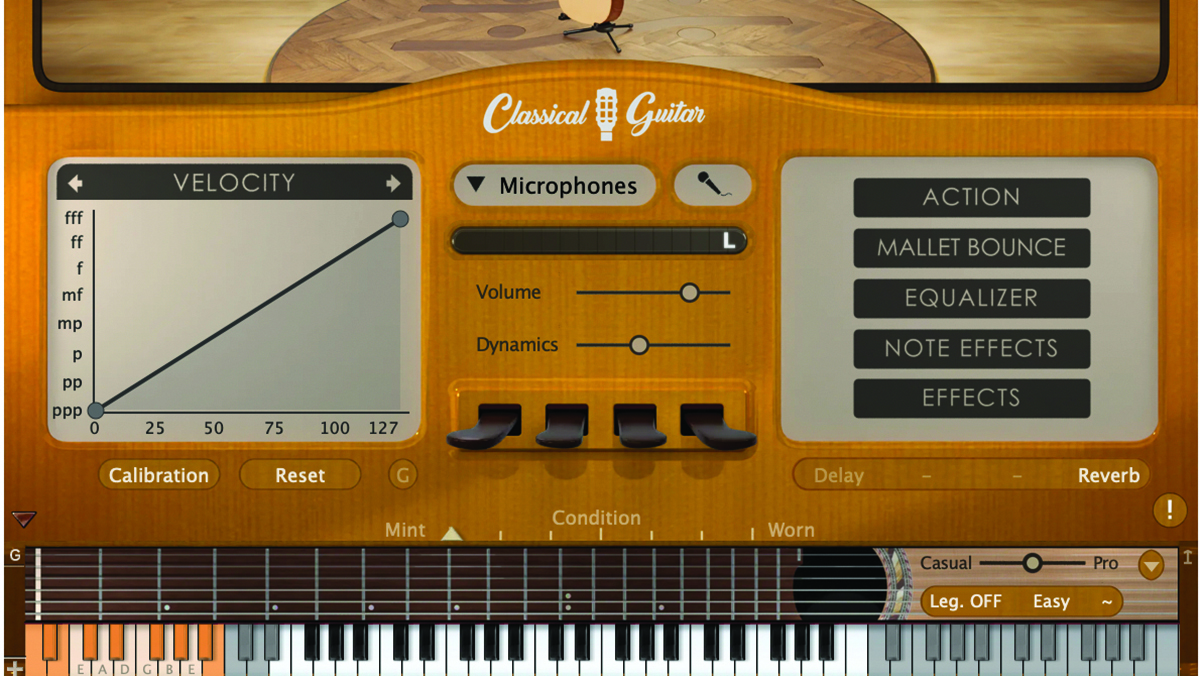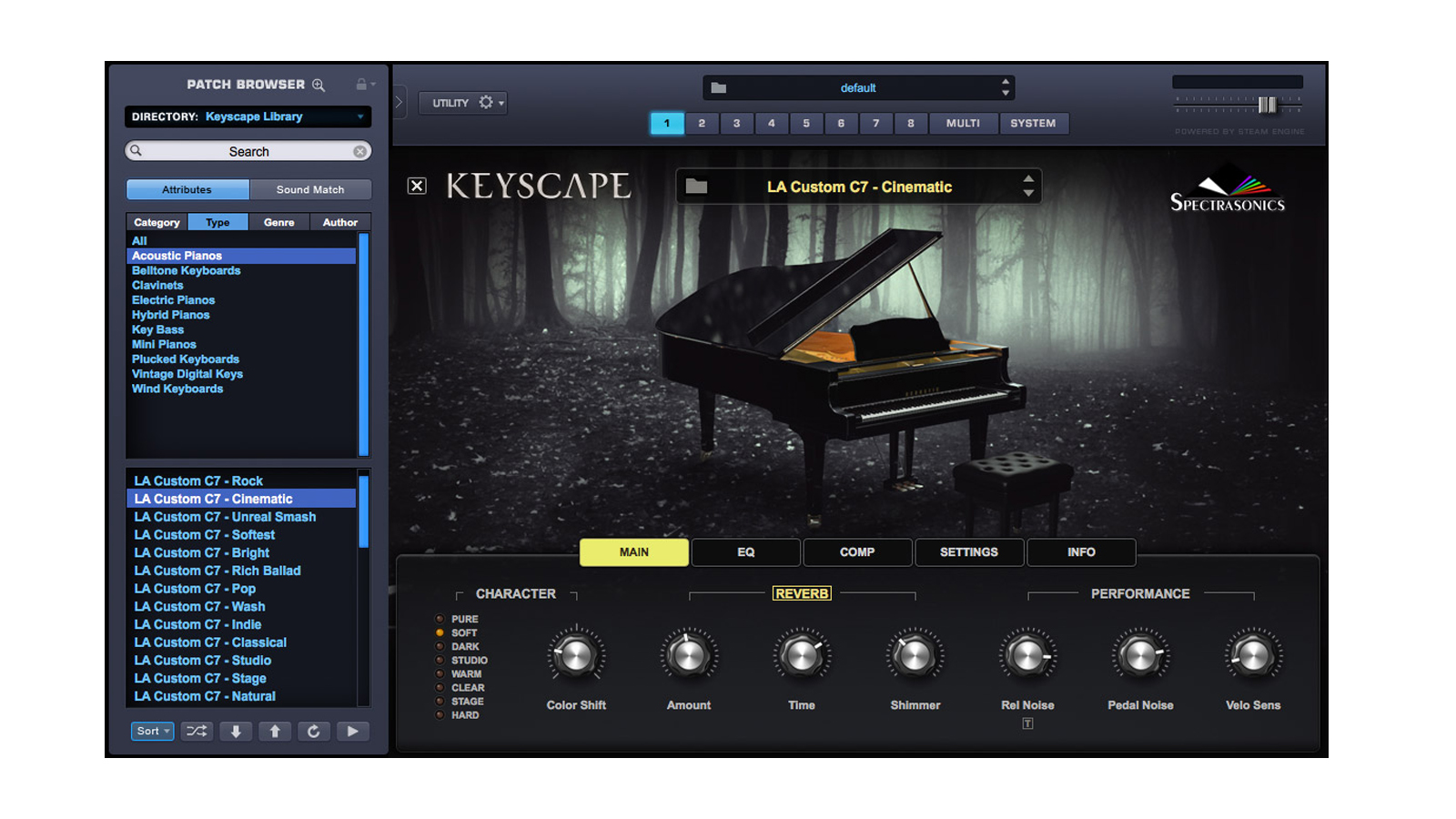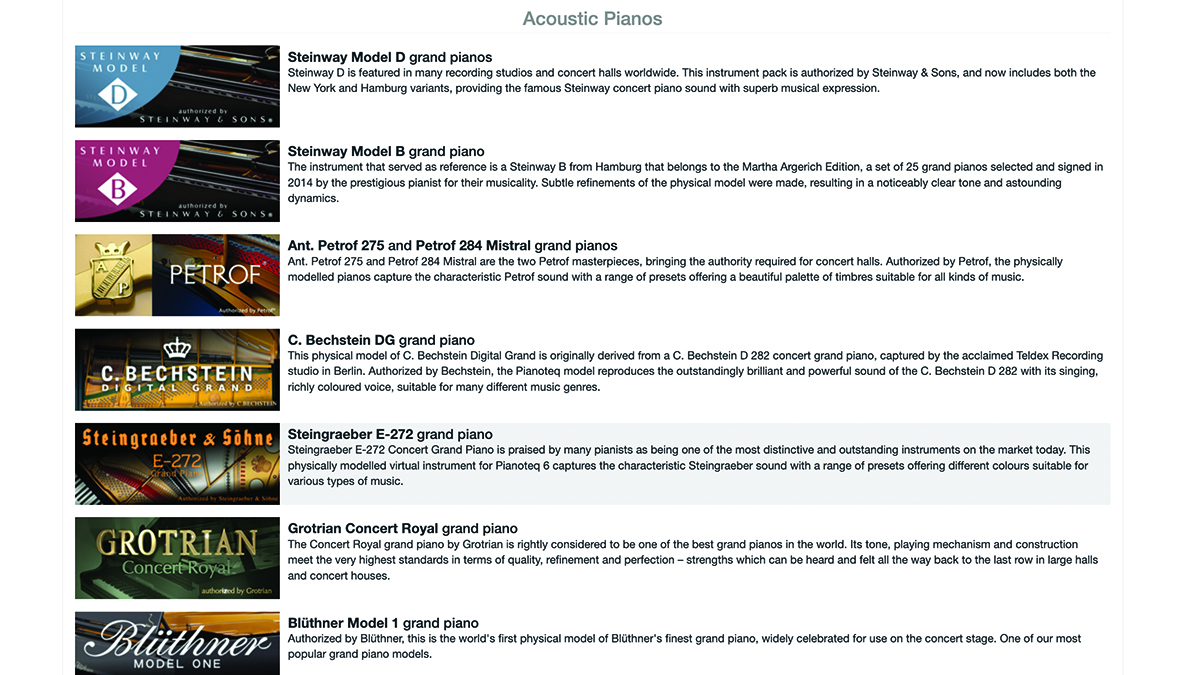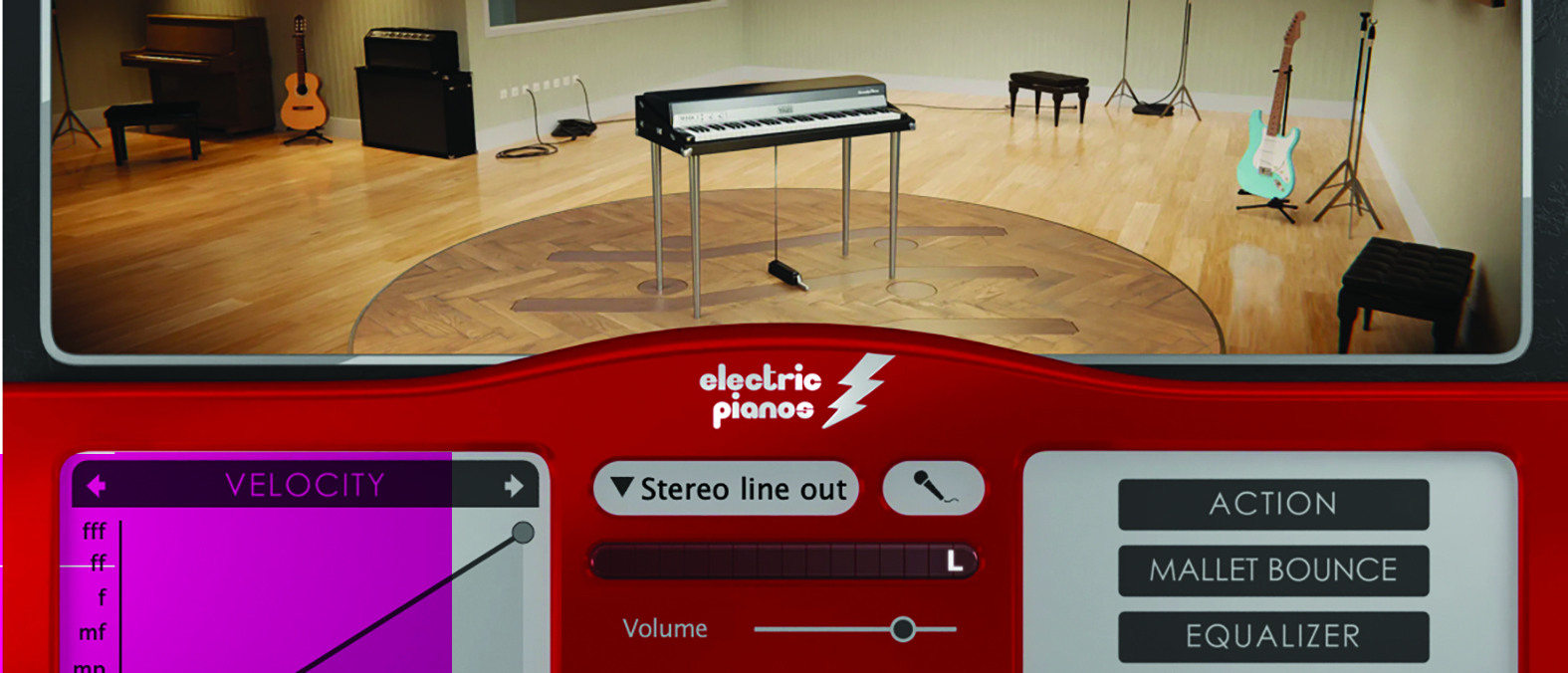MusicRadar Verdict
Modartt’s Pianoteq is reaching the piano ceiling, but successfully branching out into other rooms, and it’s as fabulous as ever.
Pros
- +
Slick, refined and as sleek as ever.
- +
More pianos – and other instruments – than you could ever wish for.
- +
Classical guitar pack is fab.
- +
Good range of purchase options.
Cons
- -
Not an essential update.
MusicRadar's got your back
Modartt Pianoteq 8: What is it?
We have, we admit it, been huge fans of Pianoteq for many years. It’s a light-on-your-processor-and-hard-drive piano instrument that has matured to be a lot more than that actually sounds. As well as encompassing just about every piano type you can imagine, it now stretches its remit across chromatic percussion, harps and a lot more. With all of these additions, Pianoteq should really be called ‘Instrumentoteq’. Only that sounds rubbish.
Just about the only complicated thing about buying Pianoteq is the level you buy in at. We’ll detail more on this below but there are four entry points. Each one gains you access to a free pack of 14 varied instruments plus access to more packs depending on your purchase level. Add more instrument packs from the 20+ now available at any time should you wish. It’s a highly flexible way to buy and you can really home in on your key favourites.
For our test we have the Pro version loaded up, complete with the extra edit features, so we may discuss some features that aren’t in the cheaper versions, so do check before you buy.

Modartt Pianoteq 8: Performance and verdict
As well as refining the main engine of the software, Modartt has added a Classical Guitar sound pack to the options available. This is stretching its remit further and certainly an indicator of where v9 could take the software.

• Spectrasonics Keyscape
36 separately modelled keyboards ranging from Wurlitzers to Fenders, toy pianos to Rhodes with a huge number of pianos.
• Your DAW piano
There’s no getting away from it: the big DAWs now have great pianos included for free (but, really, they’re not as good as Pianoteq).
And in case you were worried that the standard piano key Pianoteq interface might not handle playing guitars, you also get a new fret-based playing surface to trigger the sounds. This proves particularly useful with some of the sounds. With the arpeggiated ones, for example, it’s great to see what you are triggering. It will also be a bonus for proper players.
As to the sound of the guitar, it is pristine and nuanced, with delicate string movements. There are extra tuning options and a very neat touch is the Pro and Casual slider that adds more realistic noise, as you become less professional in your playing. It’s very realistic and a neat touch. It’s similar to the effect you get on the piano-style instruments that introduce noise.
And we really should, of course, focus back on the piano and other packs, as this is where the real strength of the software has always been. With the acoustics, as shown in the top right picture, there is no stone left unturned now, with every major model here, and many endorsed by the companies that made the originals: Steinway, Bechstein, Petrof and more.
The only thing we can add, on top of how much class and realism they will bring to your piano sounds, is how surprised you might be by the varied sounds, and what you can do with them. Acoustics have never sounded so good and if you think your standard DAW piano is good enough, then think again.
Some of the Chromatic Percussion sounds are great too. And of all of the packs, only the Steel Pan pack is one we’d perhaps not use much. That might be us, though; it sounds top-notch and is there if you want it.

Which Pianoteq?
You might be slightly confused by the four levels of Pianoteq on offer when you are first faced with the choice, but actually, it’s pretty simple. With any level you choose, you get a free pack of 14 instruments. Choose the cheapest Stage version (€139) and get two more packs from the 20+ on offer; select Standard (€269) and choose three extra packs; Pro (€399) and choose four packs; and finally Studio (€799) and get all 20+ packs.
If you really know your instruments, you might also be tempted to go for the more expensive entry points as they unlock extra features like tweaking models, advanced tuning and mic positions (for Standard) or 192kHz audio and overtone editing (for Pro). As to which one is good for you, check out the 20+ packs to choose from. We’re not convinced all are worth having – the tyranny of choice could slow you down. So maybe go for a cheaper option to start with and buy packs at your leisure for a very reasonable €49 a go.
Conclusion
This is, surprise, surprise, as good as it ever has been, and with the guitar inclusion, we could add ‘and always will be’, such is the future light which that inclusion shines. It’s by no means an essential update – hence not a perfect score – and prices have inevitably risen, but this is as near-perfect a collection of piano (and more) instruments as you’ll find. Brilliant-oteq!
MusicRadar verdict: Modartt’s Pianoteq is reaching the piano ceiling, but successfully branching out into other rooms, and it’s as fabulous as ever.
Modartt Pianoteq 8: The web says
"Well done Modartt. The guitar is a triumph and Pianoteq already was a triumph, but you made it even a little better."
SoundBytes
Modartt Pianoteq 8: Hands-on demos
Modartt
HIFIMIDI
Woody Piano Shack
Phil Best Music
Modartt Pianoteq 8: Specifications
- Available for Windows, macOS, and Linux, and will even run on some ARM-based boards such as the Raspberry Pi. It can be used both in standalone mode and as an instrument plug-in in VST, AAX, and AudioUnits hosts.
- CONTACT: Modartt
Andy has been writing about music production and technology for 30 years having started out on Music Technology magazine back in 1992. He has edited the magazines Future Music, Keyboard Review, MusicTech and Computer Music, which he helped launch back in 1998. He owns way too many synthesizers.
With the same mesh-head playability and powerful new Strata module as its bigger brothers, Alesis Strata Club brings a new compact form to its best-selling range
“An incredible experience that went beyond just teaching music”: The UK’s biggest free music making weekend is extended to four days
“This time it’s all about creativity… Go crazy. Do whatever you wanna do with it”: Budding luthiers, assemble! Harley Benton’s DIY Kit Challenge is now open and there are prizes to be won











